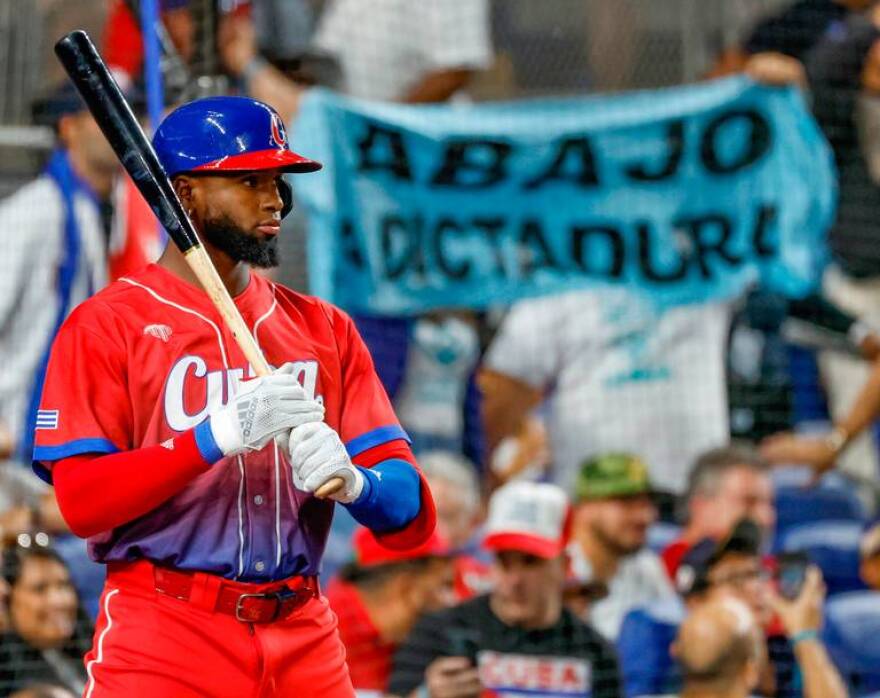Japan defeated the United States Tuesday night here in Miami to win the World Baseball Classic. But the team everyone’s still buzzing about is Cuba — which the international tournament hoped to cast, even in the Cuban exile-dominated city of Miami, as just any other national team.
The U.S. national team eliminated Cuba in Sunday night’s WBC semifinal game at LoanDepot Park. It was a rout — 14-to-2 — featuring American blasts like Trea Turners's three-run home run in the sixth inning.
But that didn’t lay to rest the political controversy.
This was the first time the Cuban national team had played in Miami since Cuba’s 1959 communist revolution. That of course didn’t sit well with much of the large Cuban exile community here, as protests at the stadium directed at Cuba’s repressive regime made clear.
Many exiles also weren’t happy with the fact that some Cuban players, who in years past defected to join teams in the U.S. major leagues, were allowed to play for the Cuban side. But then again, a lot of Cuban exiles were OK with that — if not glad about it.
“What has changed is the Cuban-American community now, which is largely comprised of people that, even though they maintain strong resentment towards the Cuban government, they still have ties to Cuba," said Ric Herrero, executive director of the Cuba Study Group think tank in Washington D.C.
"So they are more accepting of Cuban ballplayers playing on the national team, even in Miami.”
That acceptance began to grow four years ago when U.S. Major League Baseball signed a deal with the Cuban Baseball Federation that let Cuban ballplayers come play professionally in the U.S. without having to defect.
The agreement would have been a lucrative tool for MLB and the Cuban players if not also the Cuban federation, which would have received fees under the contract. But Herrero points out its more important aim was to help keep the Cuban prospects from becoming, as so often happens, victims of criminal human traffickers when they do defect.
Herrero says groups like his also saw another benefit: inspiring more Cubans on the island to become, like those baseball players, independent entrepreneurs.
“We thought that it would be constructive towards promoting greater space for civil society, for private sector activity," he said. "It could help create a hopeful sense of autonomy for individuals in Cuba.”
But the Trump Administration struck down the deal soon after it was inked, saying it violated the U.S. economic embargo against Cuba.
Still, it prompted people to look at Cuban players more like Venezuelan or Dominican players: athletes who can play in the U.S. big leagues but still play for their country. So last year the Biden Administration told Major League Cuban players they could do just that.
Two Cuban Major Leaguers did. Unfortunately for the Cuban national team, neither of them was a pitcher. Sunday night, U.S. batters lit up Cuba’s pitchers for 14 hits and four home runs.
And in the end, the Cuban player flow was still a two-way street. After Sunday night’s game, Cuban catcher Iván Prieto González, who is not a Major League player, defected in Miami.






